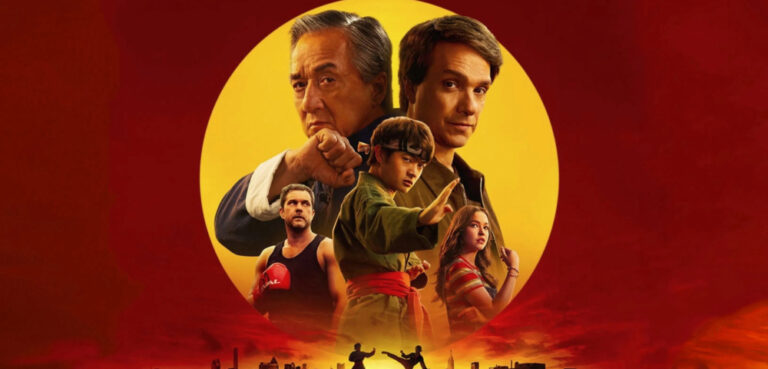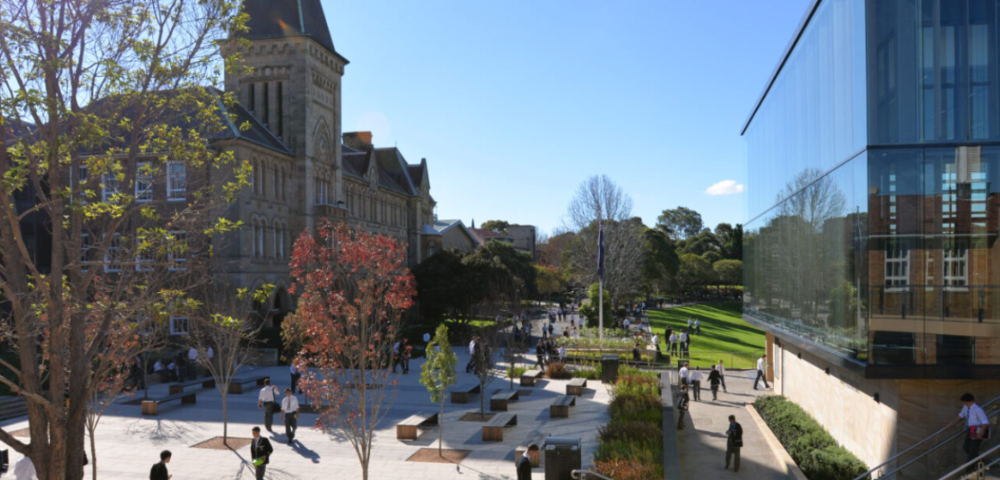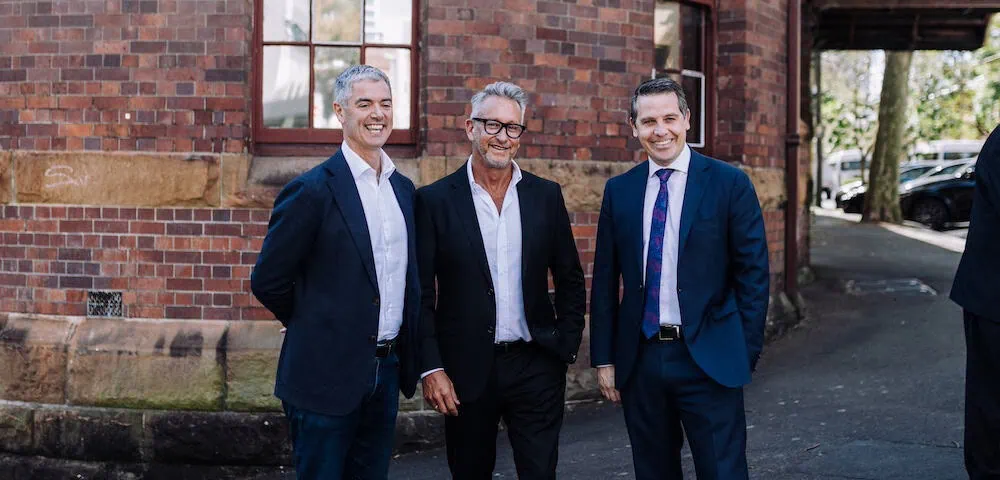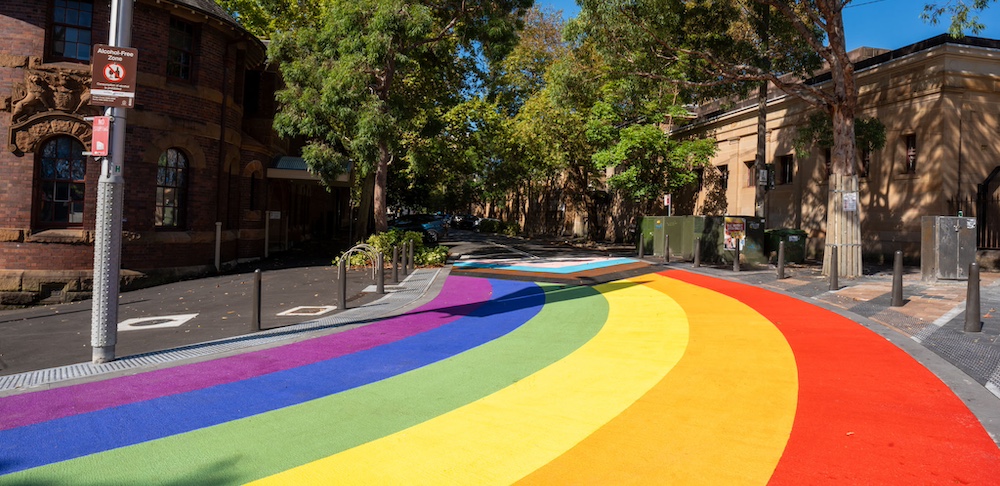
Vale Jack Carnegie: a champion of the inner-city environment

Image: Jack in the 1990s. Jack was part of the trio who organised the public meeting in Glebe Town Hall in August 1984 that launched the Greens in Australia as a registered political party. Photo: Supplied.
By HALL GREENLAND
Jack Carnegie, who died earlier this month, was a champion of the inner city environment. He will be forever immortalised as the leader of the campaign which led to Green Bans Park in Erskineville. His role in that battle is recognised with a plaque at the entrance to the park.

Another successful battle was the preservation of the public housing in Erskineville when it was threatened with a private/public makeover. Of course he wasn’t always successful – the Erskineville Post Office was sold, for instance, despite local opposition in which Jack played a key role.
But whatever the outcome, you could always depend on Jack Carnegie whenever it was an issue of social justice or protecting the environment.
Jack was born and raised in Rozelle – his father worked as a wharfie, his mother as cleaner. After the death of his mother when he was 15 he ran away to sea. His spell in the navy came to an relatively quick end when he was de-rated for bringing alcohol on to the base in Western Australia.
After a series of odd jobs in Sydney he travelled to London in 1973. Initially he worked as an account executive at an advertising agency (for which he was spectacularly unqualified – beyond his sheer audacity) and living the Barry McKenzie life in Earls Court. After six months he travelled to Marrakesh and Amsterdam, then the drug and counter-culture capitals of the world, and returned to London to work in the Roundhouse, a rock’n’roll and cultural Mecca of that time. He settled in a squat in a Hampstead mansion.
He returned to Sydney in the fateful November of 1975 determined to live a radical life. He gravitated to Annandale, living in shared or ‘communal’ houses as they were called then, and joined the Annandale Branch of the Labor party – then arguably the most left-wing and activist branch in Australia. He met Margaret Eliot, Tony Harris and Hall Greenland who introduced him to the legendary Balmain Councillors Nick Origlass and Issy Wyner. He was inspired by their ideas of participatory democracy and quickly became a practitioner of their style of community and direct action campaigning.
Expelled from the Labor party in 1984 for his support of Origlass and Wyner and opposition to uranium mining, he was part of the trio who organised the public meeting in Glebe Town Hall in August 1984 that launched the Greens in Australia as a registered political party.
Jack’s great gift was that he always managed to combine his critical support for the Greens with an ability to work with people from across the centre-left spectrum in community and industrial campaigns. Some of those people were notoriously difficult to work with, but Jack’s unsectarian charm and democratic instincts worked a treat.
Almost all his jobs were with community organisations, including a comms and organiser job with his union, the Australian Services Union. Some of the warmest tributes have come from his former comrades at that union, including Sally McManus, now secretary of the ACTU.
‘Jack Carnegie is a legend of the ASU and much loved part of our ASU family,’ Natalie Lang, the current NSW secretary, said on learning of his death. ‘Jack’s commitment to fighting for justice was unwavering – as a member, as a staff member, as a life member – and as a troublemaker. Never seeking the spotlight but always deserving it. He made us all stronger, more considered, more unwavering.
‘A friend to all. He made us laugh. He made us stand up. Words cannot describe the loss that we feel as a union or the loss that I feel as his friend.
‘Jack was kind, fun, supportive and inspirational – all wrapped up in a famously un-ironed shirt.’
Jack was one of those men who always made friends and comrades with women very easily. I think they recognised the absence of any trace of superiority or condescension. It was the most admirable part of his easy going egalitarianism. Unsurprisingly, he was lucky in love. This meant that in his activity he came as a package, in partnership first with Susan Kennett who he met in Annandale and later with Jane Rogers who he encountered when running an inner-city community transport service in the late 1990s.
Jack’s politics may have been based in the inner city but his concerns were global. He was a strong supporter of the rights of Palestinians and democratic insurgencies wherever they arose – Hong Kong, Bangkok, Minneapolis, Chile, Kashmir or Kurdistan.
As a founder of the Greens he was naturally a climate justice activist. He often went to Newcastle to participate in the coal blockades and help the Bulga community in the Hunter resist the extension of the open-cut coal mine that threatens their valley. Despite a certain pessimism about whether humanity can rise to the challenge of curbing climate change, Jack drew much hope from Greta Thunberg and the school student climate strikes of the past two years.
In his last months, suffering from an advanced case of cancer, it was typical of Jack Carnegie that he proposed travelling to Glasgow to join the protests around the COP26 climate change conference in November. Right to the end, his life was a political one, in the best sense of the word, in the service of fellow human beings and the planet.











